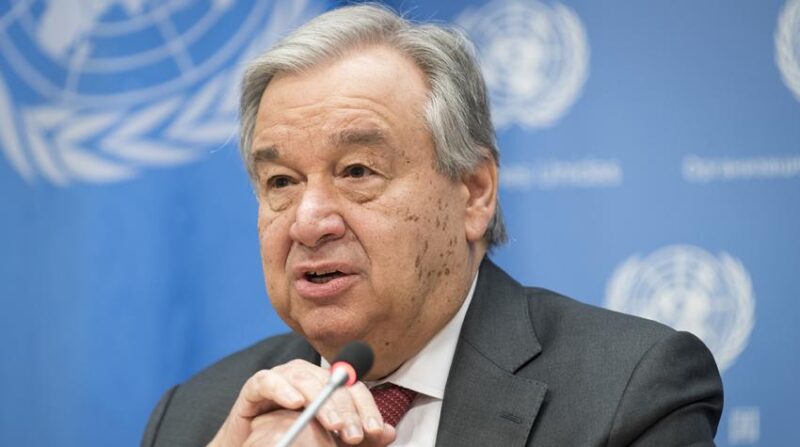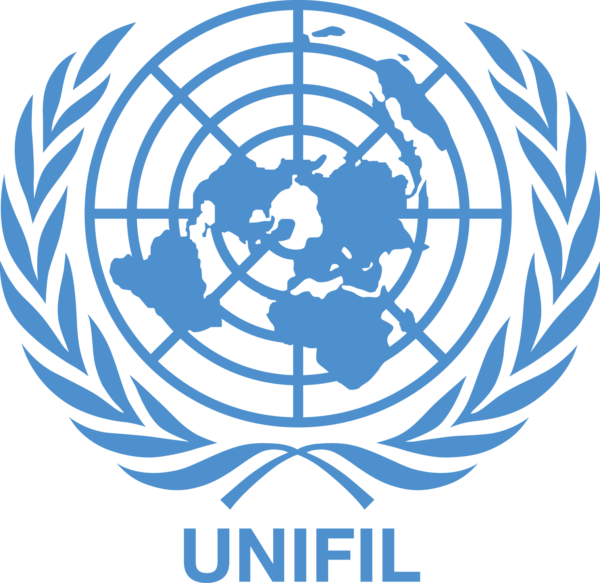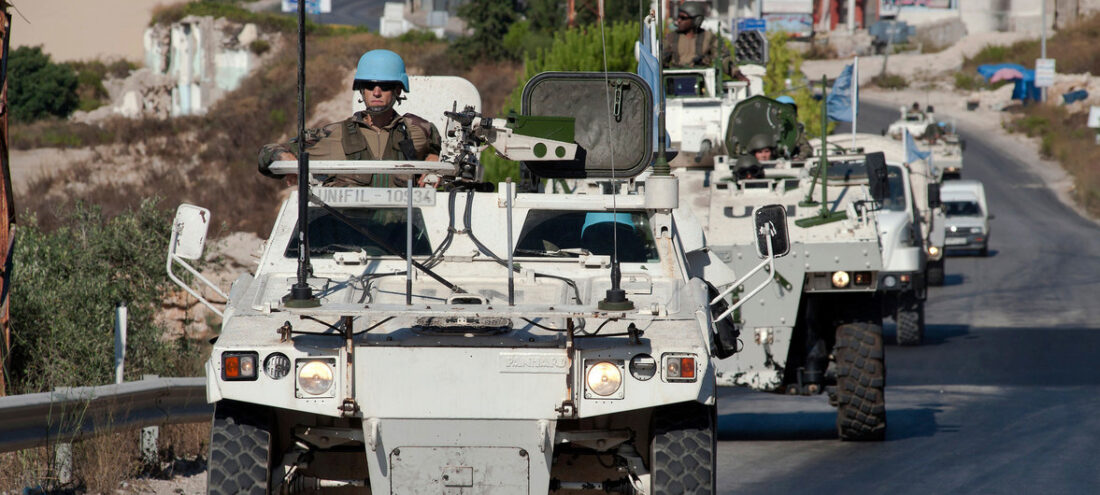France has circulated a draft resolution at the United Nations Security Council calling for the extension of the mandate held by the United Nations Interim Force in Lebanon (UNIFIL). Ideally, it should be renewed because that international peacekeeping force has played a fairly useful and constructive role in southern Lebanon since its formation in 1978.
As UN Secretary-General Antonio Guterres noted late last month, UNIFIL, staffed by 10,275 troops from a wide variety of countries, helps maintain the peace in southern Lebanon, a volatile area where Israel and Hezbollah have clashed.

Before its mandate is extended by the August 31 deadline, UNIFIL must be sufficiently strengthened so that it can fulfill its mission completely. As matters now stand, UNIFIL cannot effectively maintain the peace along Israel’s sometimes tense border with Lebanon.
So major changes are required before the French resolution can be passed. The Trump administration has threatened to veto it unless UNIFIL is reformed to its exacting standards.
UNIFIL was established to oversee the Israeli withdrawal from southern Lebanon following Operation Litani, Israel’s first invasion of Lebanon. Israel launched it following a Palestinian terrorist incident inside Israeli territory that claimed the lives of 38 civilians and soldiers.
Having destroyed Palestinian bases south of the Litani River, Israel withdrew from Lebanon, leaving UNIFIL in charge of maintaining calm. UNIFIL was not up to the task because it was unable to challenge Palestinian military forces. Israel invaded Lebanon again in 1982, forcing armed Palestinian groups to leave the country.
Israel, allied with a Lebanese Christian proxy force known as the South Lebanon Army, occupied southern Lebanon and carved out a security zone there to protect its northern border. But Lebanon remained a tinderbox after the establishment of Hezbollah, a Shi’a militia funded and trained by Iran.

UNIFIL’s mandate was expanded following the month-long 2006 Second Lebanon War, which pitted Israel against Hezbollah. UNIFIL troops were deployed along the Israeli border to bolster the Lebanese army’s authority. But Hezbollah, in defiance of UN resolution 1701, refused to disarm and, with the encouragement and assistance of Iran, continued to build a formidable military machine in southern Lebanon.
UNIFIL was powerless to thwart Hezbollah’s buildup, and 14 years on, Hezbollah is still the dominant power there.
The Israeli government correctly believes that Hezbollah has impeded UNIFIL from fully carrying out its mission. Understandably enough, Israel is unhappy over UNIFIL’s inability, or unwillingness, to keep Hezbollah in check. A year and a half ago, for example, the Israeli Army discovered six Hezbollah attack tunnels that ended in Israel.
Where was UNIFIL when Hezbollah brazenly built these subterranean passages?
Israel, therefore, is demanding significant changes before UNIFIL’s extension is officially approved. Its former ambassador to the UN, Danny Danon, outlined Israel’s position three months ago: UNIFIL should have complete freedom of movement so that its effectiveness is not compromised. UNIFIL should have access to all sites. And when its operations are blocked, the UN Security Council should be informed immediately. Danon also said that UNIFIL’s mandate should be extended by six months rather than by one year to allow for technical modifications should the situation on the ground deteriorate.
The United States, Israel’s chief ally and UNIFIL’s main funder, supports Israel’s concerns. On August 11, the American ambassador to the UN, Kelly Craft, said, “The status quo in Lebanon is unacceptable. Now is the time to empower UNIFIL, end the long complacency, and enable the mission to fully achieve what it was set out to accomplish.”

Craft charged that UNIFIL has been prevented from fulfilling its mission, and that Hezbollah has “been able to arm itself and expand operations, putting the Lebanese people at risk.”
The majority of Security Council members appear reluctant to endorse the changes proposed by Israel and the United States and seem ready to extend UNIFIL’s current mandate for another year. That being the case, both sides should be prepared for a sensible compromise solution.
Southern Lebanon would be a far more dangerous, potentially explosive place without UNIFIL.
